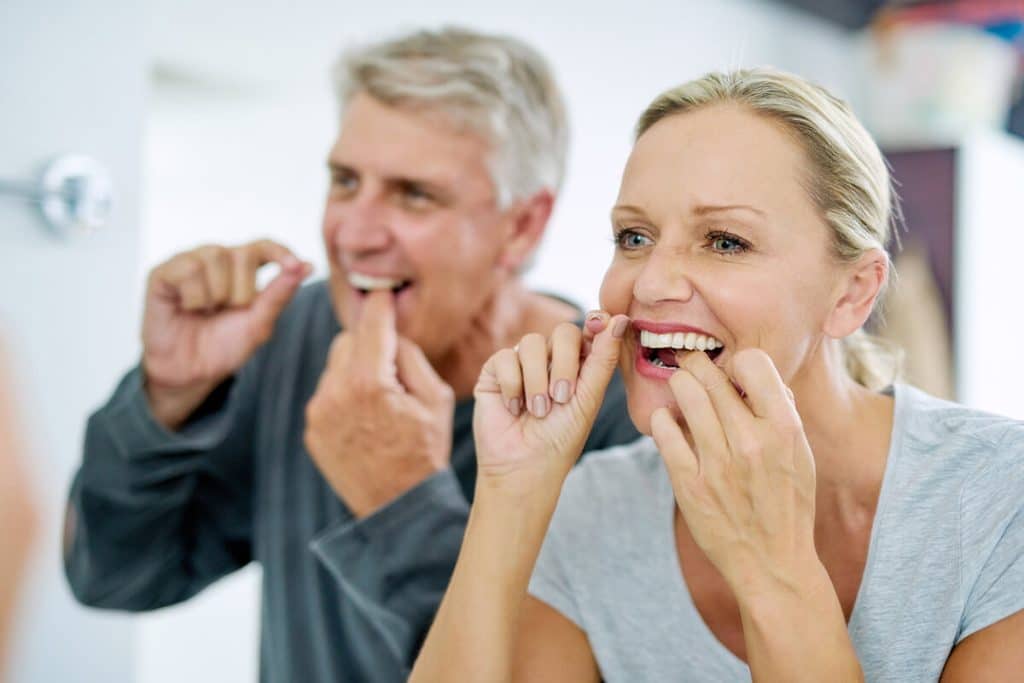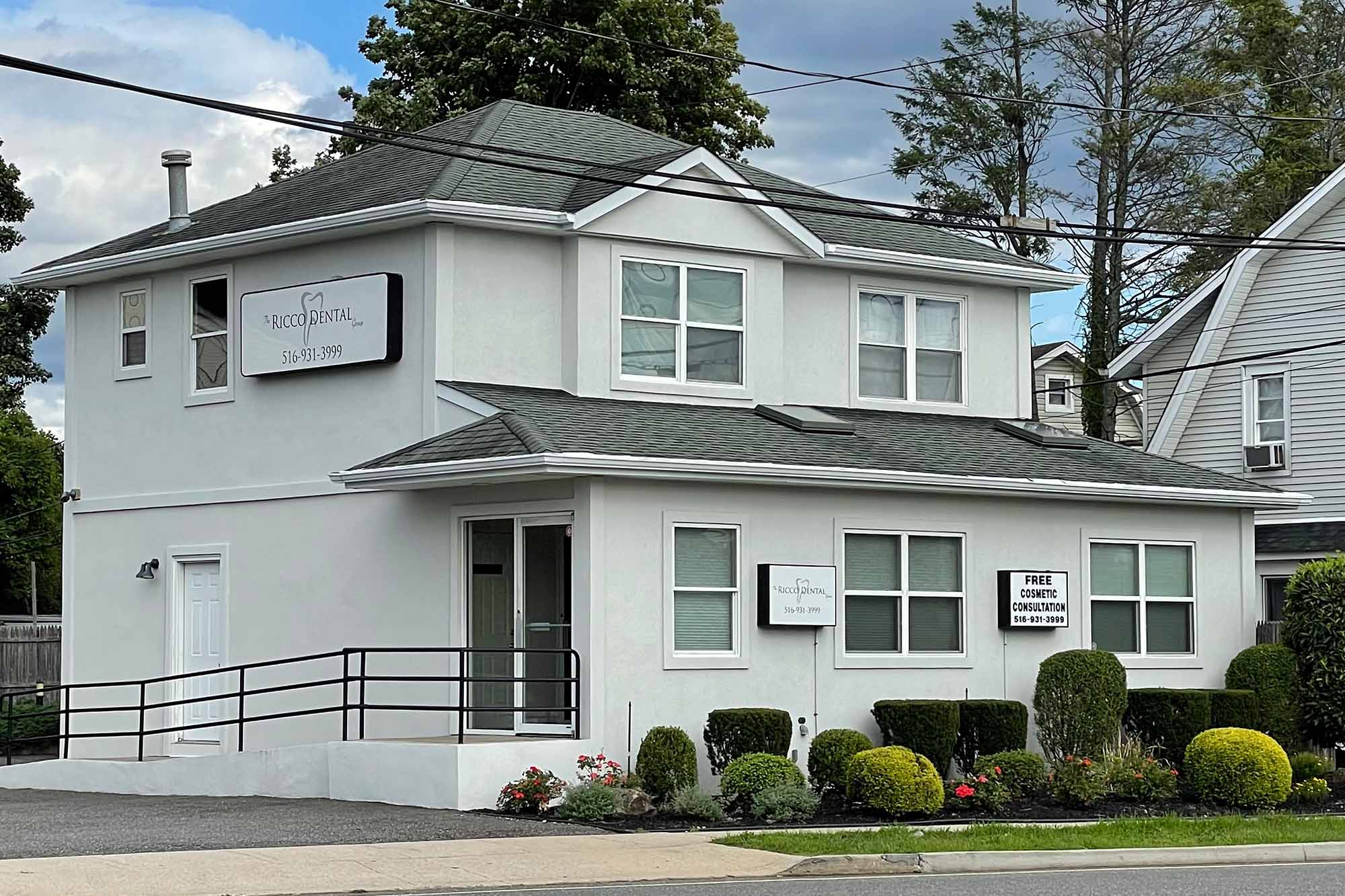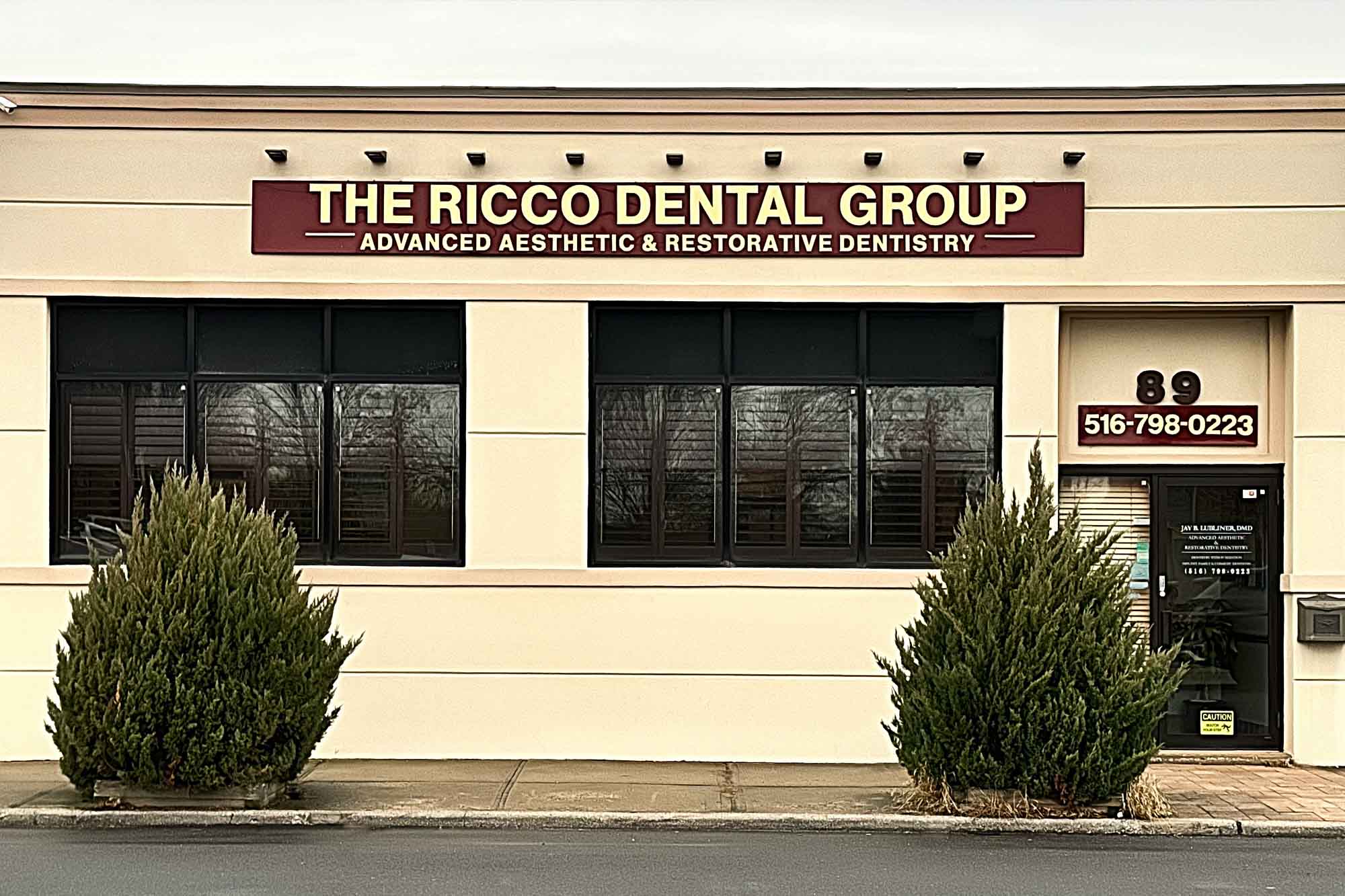4 Tips to Protect Your Teeth As You Get Older

Gray hairs that seem to appear overnight, crow’s feet around the corners of your eyes, and knees that creak when you walk up the stairs—we’re all familiar with these telltale signs of getting older, but what you may not know is that your teeth and gums also show signs of aging. In older patients, gum recession, stained teeth, thinning enamel, and wear are all common dental problems. Sometimes these issues are simply due to aging, while other times, they’re caused by medications and health conditions that are more common among older adults. Below, we discuss some steps to help you protect your teeth in your golden years.
1. Prevent Dry Mouth
Dry mouth is not only unpleasant, but it also has a serious impact on your oral health. Throughout the day, saliva dilutes and washes away bacteria, food particles, and dead cells in your mouth. This process doesn’t work as efficiently if your mouth is dry, allowing the harmful bacteria that causes tooth decay and gum disease to multiply.
Dry mouth is a side effect of some of the most common drugs that older adults take to stay healthy. Although you might not be able to stop taking these medications, you can take steps to protect your oral health by making sure you remain well-hydrated. Bring a water bottle with you wherever you go and drink from it all day long. Avoid sugary drinks that can encourage bacteria growth in your mouth, as well as caffeinated drinks like coffee and tea, which can lead to dehydration. If you’re someplace where you don't have access to water, make sure you have sugar-free lozenges or gum on hand to help increase saliva production.
2. Be Vigilant Against Oral Cancer
Oral cancer risk increases as we get older, making comprehensive oral evaluations more important than ever. During these appointments, Dr. Ricco will examine your lips, mouth, cheeks, neck, and other soft tissues for irregularities and lesions that have the potential to be cancerous.
Oral cancer can be a devastating diagnosis, so it’s important to be proactive about cancer prevention. If you use tobacco products, talk to your physician about quitting. Drink alcohol in moderation only, replace your mouthwash with one that is alcohol-free, and wear a lip balm with SPF whenever you’re outside, at any time of year.
3. Brush Better
We all learn how to brush our teeth when we’re toddlers, and many people never update their technique even after several decades have passed! Two of the most common issues we see are patients who think they’re brushing for two minutes but aren’t, brushing while distracted, or brushing with too much pressure.
Brushing teeth too hard or with stiff bristled toothbrushes is common, but this can lead to enamel loss and gum recession over time. If you brush for the recommended two minutes twice a day, you only need gentle brushing with a soft-bristled brush to get your teeth clean.
Be mindful that you thoroughly brush all three parts of your teeth: inner, outer, and chewing surfaces. Use a soft-bristled manual toothbrush or an electric toothbrush with a built-in timer so you know exactly when two minutes have elapsed.
4. See Your Dentist Regularly
Regular dental visits, in addition to good oral hygiene practices at home, are important for long-term dental health as you get older. Your dental cleanings will go a long way toward preventing tooth decay and gum disease, and regular visits allow Dr. Ricco to identify minor dental issues while they’re easy to treat—and before they lead to serious problems that compromise your oral health.
Make an Appointment Today
Do you have concerns about how to care for your teeth as you get older? Contact us today at 516-931-3999 to schedule an appointment.




